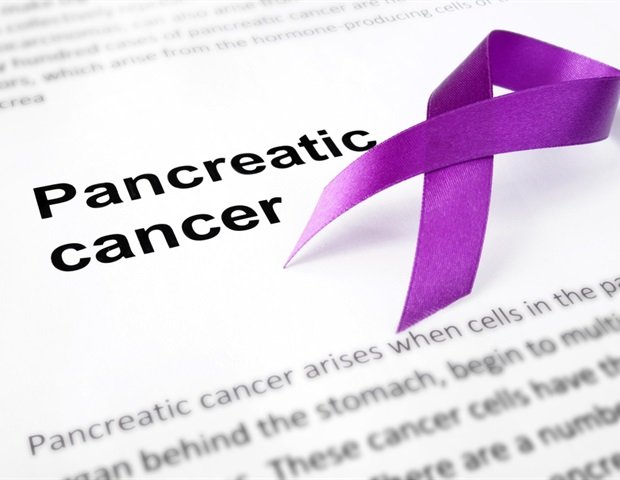Pancreatic cancer is notoriously difficult to treat and often resists the most advanced immunotherapies. Northwestern Medicine scientists have uncovered a new explanation for this resistance: Pancreatic tumors use a sugar-based disguise to hide from the immune system. The scientists also created an antibody therapy that blocks the sugar-mediated “don’t attack” signal.
For the first time, the team identified how this sugar trick works and showed that blocking it with a monoclonal antibody reawakens immune cells to attack cancer cells in preclinical mouse models.
“It took our group about six years to uncover this new mechanism, develop the right antibodies and test them,” said senior study author Mohamed Abdel-Mohsen, associate professor of medicine in the division of infectious diseases at Northwestern University Feinberg School of Medicine.
“Seeing it work was a breakthrough.”
The study will be published on Monday, November 3 in the journal Cancer research (published by the American Association for Cancer Research) to mark the beginning of Pancreatic Cancer Awareness Month.
Activating the immune system again
Pancreatic cancer is one of the deadliest cancers. It is often diagnosed late, with few treatment options and a five-year survival rate of just 13%. It also tends to resist immunotherapies that work well against other cancers.
Within pancreatic tumors, the immune system response is abnormally suppressed. “We set out to learn why and if we could reverse this environment so immune cells attack cancer cells instead of ignoring them or even helping them,” Abdel-Mohsen said.
The team found that pancreatic tumors breach a natural safety system used by healthy cells. Under normal conditions, healthy cells express a sugar called sialic acid on their surface to signal to the immune system “don’t hurt me”.
The scientists discovered that pancreatic tumors take advantage of this system by loading the same kind of sugar onto a surface protein called α3β1 integrin. This sugar coating allows the protein to bind to a sensor on immune cells called Siglec-10, sending a false “stop” signal.
In short, the tumor covers itself – a classic wolf in sheep’s clothing – to escape immune surveillance.”
Mohamed Abdel-Mohsen, associate professor of medicine, division of infectious diseases, Northwestern University Feinberg School of Medicine
Creating a new antibody
Once they discovered this new hiding mechanism, Northwestern scientists developed monoclonal antibodies that blocked it. When they used these antibodies in the lab and in two animal models, the immune system cells woke up and started eating cancer cells. Tumors in treated mice grew significantly more slowly than in untreated controls.
Creating these antibodies was no small feat. “When you make an antibody, you test what are called hybridomas, antibody-producing cells. We looked at thousands before we found the one that worked,” Abdel-Mohsen said.
The next step, he said, is to combine the antibody with current chemotherapy and immunotherapy treatments. “There is a strong scientific rationale to believe that combination therapy will allow us to reach our ultimate goal: complete remission,” he said. “We don’t just want a 40% reduction or slowing of the tumor. We want to remove the cancer completely.”
Proceeding to clinical examination
Abdel-Mohsen said his team is now optimizing the antibody for human use and moving toward early safety and dosing studies. In parallel, they are testing it in combination with chemotherapy and immunotherapy, and developing a companion test to determine which patient tumors rely on this sugar-based pathway, so that clinicians can match the right people to the right treatment.
Abdel-Mohsen estimates that it could be about five years before such a treatment is available to patients if progress continues as planned.
Beyond pancreatic cancer, the findings could have broader implications, he said. “We are now asking whether the same sugar-coating trick occurs in other hard-to-treat cancers, such as glioblastoma, and in non-cancerous diseases where the immune system is misled.”
Abdel-Mohsen’s lab focuses on the growing field of glyco-immunology, which studies how sugars regulate the immune system. “We’re just scratching the surface of this field,” he said. “Here at Northwestern, we are able to turn these sugar-based insights into real-world treatments for cancer, infectious diseases and aging-related conditions.”
Abdel-Mohsen is a member of the Robert H. Lurie Comprehensive Cancer Center at Northwestern University.
Source:
Journal Reference:
Saini, P., et al. (2025). Targeting interactions between integrin Siglec-10 and α3β1 enhance macrophage-mediated phagocytosis of pancreatic cancer. Cancer research. doi.org/10.1158/0008-5472.can-25-0977
